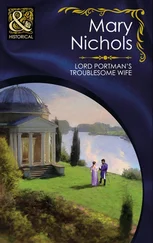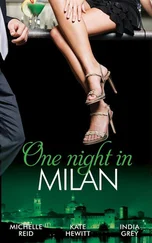Mary Waddington - Italian Letters of a Diplomat's Wife - January-May, 1880; February-April, 1904
Здесь есть возможность читать онлайн «Mary Waddington - Italian Letters of a Diplomat's Wife - January-May, 1880; February-April, 1904» — ознакомительный отрывок электронной книги совершенно бесплатно, а после прочтения отрывка купить полную версию. В некоторых случаях можно слушать аудио, скачать через торрент в формате fb2 и присутствует краткое содержание. Издательство: Иностранный паблик, Жанр: Биографии и Мемуары, История, foreign_edu, foreign_antique, foreign_prose, на английском языке. Описание произведения, (предисловие) а так же отзывы посетителей доступны на портале библиотеки ЛибКат.
- Название:Italian Letters of a Diplomat's Wife: January-May, 1880; February-April, 1904
- Автор:
- Издательство:Иностранный паблик
- Жанр:
- Год:неизвестен
- ISBN:нет данных
- Рейтинг книги:3 / 5. Голосов: 1
-
Избранное:Добавить в избранное
- Отзывы:
-
Ваша оценка:
- 60
- 1
- 2
- 3
- 4
- 5
Italian Letters of a Diplomat's Wife: January-May, 1880; February-April, 1904: краткое содержание, описание и аннотация
Предлагаем к чтению аннотацию, описание, краткое содержание или предисловие (зависит от того, что написал сам автор книги «Italian Letters of a Diplomat's Wife: January-May, 1880; February-April, 1904»). Если вы не нашли необходимую информацию о книге — напишите в комментариях, мы постараемся отыскать её.
Italian Letters of a Diplomat's Wife: January-May, 1880; February-April, 1904 — читать онлайн ознакомительный отрывок
Ниже представлен текст книги, разбитый по страницам. Система сохранения места последней прочитанной страницы, позволяет с удобством читать онлайн бесплатно книгу «Italian Letters of a Diplomat's Wife: January-May, 1880; February-April, 1904», без необходимости каждый раз заново искать на чём Вы остановились. Поставьте закладку, и сможете в любой момент перейти на страницу, на которой закончили чтение.
Интервал:
Закладка:
We spent two hours in the Uffizi yesterday looking at all the old friends again. I was delighted to see the dear little "St. John in the Wilderness" hanging just where it did before, on one side of the door in the Tribuna; also the Peruginos—I like them so much—his Madonnas with their wooden faces, but a pure, unearthly expression all the same, and the curious green colour one sees in all his pictures. We saw as much as we could in the two hours, but as it was the second visit we found our way about better. I never rested until I found the corridor with Niobe and all her children—it used to fascinate me in the old days. One realized perfectly all those big sons and daughters, so terrified, and the last little one clinging to his mother's skirts.
We went to tea, Mary and I, with Edith Peruzzi—quite quietly—as she wanted to show me her children—and fine specimens they are; a duck of a boy, quite sociable and smiling. Nina and Louisa Maquay came in—Louisa looked lovely. This morning I went to the English church with Mary and Beatrice. We didn't go out again till late—after tea—as we had various visitors, among others Schuyler Crosby, who had asked us to dine but we had no evening left. I saw him riding the other day in the Cascine, and recognised him some way off by his seat. I don't know what it is, but whatever the Americans do, whether riding, dancing, or tennis, they do it differently from any one else. I was talking about it the other day to an Englishman who had seen some of the Anglo-American boat races, and he quite agreed with me, said their rowing was very good, but quite another thing from the English sport.
We drove out again Fiesole way. It was enchanting—more roses come out every day. There was a perfect fringe of pink roses hanging over some of the old grey walls. As it was Sunday, and a lovely day, there were quantities of people about. There are scarcely any costumes left, but all Italians like bright colours, and the red and green fichus and aprons looked pretty and gay as the various groups passed us. Some of the old women were terribly bent, with such brown, wrinkled faces—one could quite see that they had toiled up and down hills under the Italian scorching sun all their lives, with baskets and bundles of fagots on their backs—but the old eyes were keen and smiling. They don't look so utterly starved and wretched as Ouida (and others) say they are. I suppose they live on nothing, and go on quite simply, leading the same lives that their fathers and mothers did before them, without knowing of anything better.
Tell Henrietta I haven't made much progress in the travelling work she presented me with. I did take it out into the drawing-room one evening, but the immediate result of that was disastrous. I took it out of the bag proudly, to show that I had silk, embroidery, scissors, needles, etc., like everybody else, but left it on the table. Somebody wanted a book or a newspaper also on the table; turned everything upside down, and the work, silk, needles, thimble, etc., went rolling all over the floor. When you think of the crevasses of an old parquet floor in an Italian Palace, you can imagine how difficult it was to find anything again. The two girls were hours on their knees looking for my thimble which never turned up—however, that will be an excellent reason for buying a pretty little gold thimble with a row of turquoises that I saw the other day in a shop on the Ponte Vecchio. There is evidently a fate against my becoming an accomplished needlewoman, and I am afraid the "clumsy little fingers," which used to worry you so in the old days of music lessons, have not improved with advancing years. Perhaps I shall take to work in my old age. Isn't it George Sand who says (and I don't believe she ever took a needle in her hand), "Don't despise our less ambitious sisters who work. Many great resolutions and silent abnegations have been woven into the bright flowers and delicate tracings of the embroidery in the long hours spent over the frame."
Monday Night, February 22, 1880.We really are starting to-morrow morning—trunks are packed, compartment engaged, and we have said good-bye to everybody. I made a last little turn this morning in the Boboli Gardens. I didn't see the custode—I wanted to say good-bye to him. Then we went to the Pitti gallery, W. wanted to see one particular Botticelli, "la bella Simonetta" I think, which he and Mary had been talking about, and which we had missed the other day. It is quite impossible to see everything. I had remembered pretty well the principal pictures. Then we took a fiacre and went out to San Marco to see the Fra Angelicos and Savonarola's cell. We had never once got there, there is always so much to do. We walked through the cloisters first—the frescoes are perfectly well preserved—some of Fra Angelico's and others less interesting. I wanted to see the cells, and was quite pleased to recognise the "Coronation of the Virgin" and the "Madonna and Child" surrounded by angels, all in their long green-blue robes with wings and musical instruments of all kinds. As usual people were copying them, and I will try and find a pretty one and bring it back. I want the one in a sort of light green dress blowing a trumpet. The faces are quite beautiful, so pure. He must have had a wonderful imagination—I wonder if he believed angels look like that? Somehow or other I always think of an angel in a white robe. We saw of course Savonarola's cell, and they showed us his rosary, and a piece of wood which is supposed to have been taken from his funeral pile. It all looked so peaceful and smiling to-day, one could hardly realize the long hours of doubt and self-torture passed in these solitary cells. There is a fine description in one of the numerous books the Bunsens have on Florence, of Savonarola's preaching—all the people congregated in the great square before the church, when there was no longer any room inside, leaving their shops and their work to come and listen to him. That is one of the delightful things in this household, you can always find a book in almost any language about any subject that interests you, religion, music, politics, everything.
Beatrice has a delightful German magazine, "Monatsheft," very well illustrated, with all the modern German literature, stories, essays, criticisms, etc. One could almost wish for a rainy day or a quiet evening to read a little.
W. went off by himself the other night and had a very pleasant evening. First to the Piccolellis' where he found a small party and his old friend Bentivoglio, with whom he had travelled in the East. Of course they instantly got into a corner and talked shop (medals). Then to Lottie Van Schaick who had a few friends, where he amused himself very much.
Gertrude writes that our rooms are very nice, and the man at the hotel delighted to have us. I wonder what Rome will be like. It will seem funny to be back there again, a respectable middle-aged lady. I think one should always be young and gay to live in Italy.
We had a fine musical evening Saturday with the Landi family—five; mother, father, daughter, son, and grandfather. Madame Landi sang anything, everything, delightfully. Some of the stornelli and peasant songs, those particularly of the Abruzzi mountains, were charming. I wonder what Italians have got in their "gosier" that we haven't, that gives such a charm to their simplest song. I sang once or twice in French, and then Madame Landi and I did some duos in Italian which went very well. She was very complimentary over my Italian (I told it triumphantly to W., but he remains under the impression of the razor), said it was evident I had learnt in Rome; the language is so much softer, or rather the pronunciation "Lingua toscana in bocca romana."
The old father was killing, knew everything, was wildly interested, and criticised freely. I think the daughter will have a very pretty voice, like her mother's, a rich, low mezzo.
Читать дальшеИнтервал:
Закладка:
Похожие книги на «Italian Letters of a Diplomat's Wife: January-May, 1880; February-April, 1904»
Представляем Вашему вниманию похожие книги на «Italian Letters of a Diplomat's Wife: January-May, 1880; February-April, 1904» списком для выбора. Мы отобрали схожую по названию и смыслу литературу в надежде предоставить читателям больше вариантов отыскать новые, интересные, ещё непрочитанные произведения.
Обсуждение, отзывы о книге «Italian Letters of a Diplomat's Wife: January-May, 1880; February-April, 1904» и просто собственные мнения читателей. Оставьте ваши комментарии, напишите, что Вы думаете о произведении, его смысле или главных героях. Укажите что конкретно понравилось, а что нет, и почему Вы так считаете.












